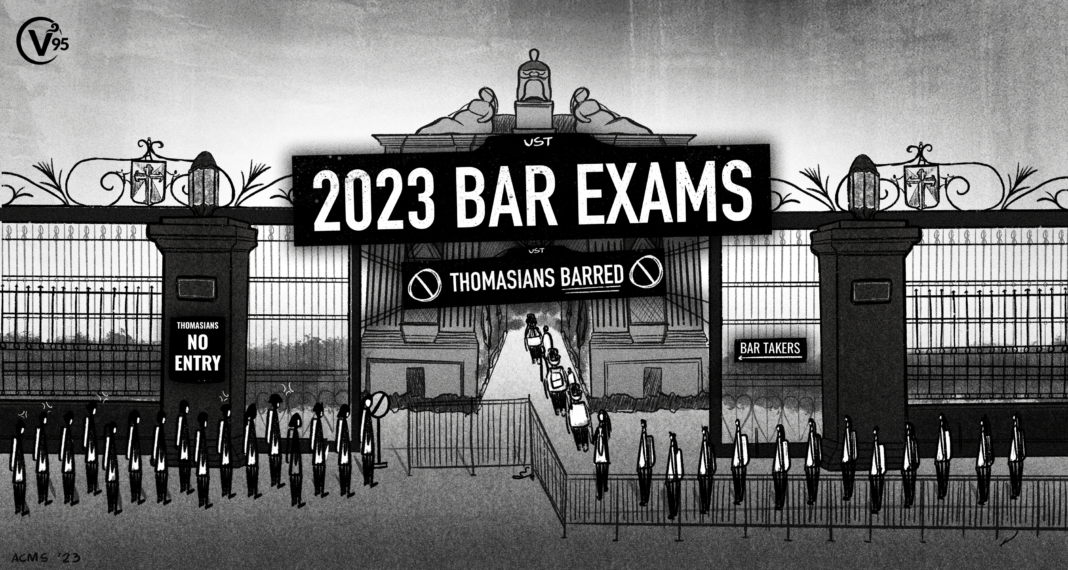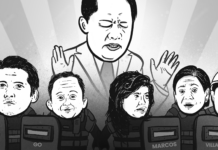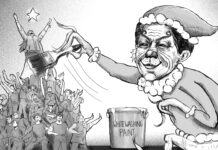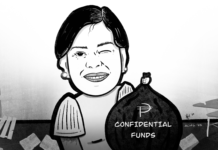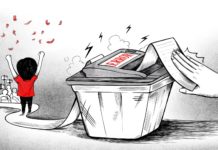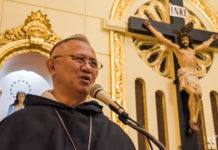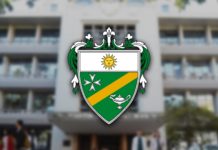There should be a better way of hosting the Bar exams but definitely barring thousands of students from coming to school is not it. It is well and good that more than 700 aspiring lawyers gathered at UST on Sept. 17, 20 and 24 to take the exams so as to be admitted to the bar. But with them came a disruption to the academic calendar and a virtual suspension of campus operations, especially for the several big colleges and other schools housed in buildings that were going to be used to accommodate examiners. While the Bar exams are undoubtedly important, the decision to bar some Thomasians from school during this period raises important questions about the best way to strike a balance between the needs of aspiring lawyers and the broader educational community.
UST has been the host venue for the Bar examinations since 2011, a responsibility it assumed after the tragic 2010 bombing incident at De La Salle University, which left 47 aspiring lawyers injured. Prior to the pandemic, the Bar exams at UST were exclusively conducted on Sundays. However, starting from the 2020/21 cycle, the Bar examinations have been scheduled to also take place on weekdays in testing centers spread across the country. This shift, largely due to educational institutions hosting the exams, has introduced disruptions, especially at UST.
During the exams days on Sept. 17 (Sunday), 20 (Wednesday), and 24 (Sunday), only the UST Hospital, Carpark, Institute of Physical Education and Athletics (for specific student-athletes using the Quadricentennial Pavilion), Santísimo Rosario Parish, Hotel 1611 and Domus Mariae were allowed to operate apart from designated buildings where exams were held. The Benavides Building and St. Raymund de Peñafort Building were used as testing areas, while the Tan Yan Kee Student Center served as headquarters for Supreme Court officials.
The College of Fine Arts and Design and College of Architecture at the Beato Angelico Building; College of Commerce and Business Administration and Faculty of Arts and Letters at the St. Raymund de Peñafort Building and Junior High School at the Benavides Building, which collectively accommodate around 10,000 students, were the most affected by the Bar exams. They were forced to shift to online instruction on the ingress (Sept. 13-14), simulation (Sept. 15), pre-bar (Sept. 16, 19 and 23) and egress (Sept. 25-26) days. Additionally, there was a University-wide shift to online classes and remote work on Sept. 20, the Bar exam day that fell on a Wednesday.
The Bar exams led to disruptions in the class schedule for up to nine days and affected the onsite operations of onsite academic and administrative for one day.
With the numerous class cancellations due to adverse weather conditions and inadequate air quality over the past month factored in, it’s clear that the academic calendar took a hit despite UST having the essential technological infrastructure for online teaching.
This disruption due to the Bar examinations goes beyond being a mere inconvenience; it is counterproductive. It has hindered students’ educational progress, especially considering that the preliminary examinations are approaching.
The Bar examinations demand meticulous planning and coordination to safeguard their integrity. However, it is equally vital that the legal profession serves as a shining example of ethics, trustworthiness, and fairness. The current approach of implementing highly restrictive measures during the Bar exams, to the extent that it necessitates the suspension of classes, appears to foster a culture of suspicion rather than one of trust and openness within the legal community.
While security concerns are certainly important, the current hyper-focus on security measures by the Supreme Court has resulted in burdens on the wider academic community.
The Supreme Court must recognize the consequences of the restrictive nature of Bar exams, as demonstrated by UST’s decision to suspend classes just to accommodate them. It is time to strike a balance that preserves the integrity of the exams while respecting the rights and educational journeys of all students.


